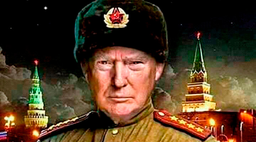How can we avoid the mistakes of the past and overcome the legacy of Putinism and the consequences of the war in Ukraine? These questions are being asked by both Russian advocates of democratic change and our Western allies. In his paper “The Normal Russia of the Future: Yes We Can,” political scientist Fyodor Krasheninnikov and Vladimir Milov, vice president of the Free Russia Foundation, attempt to answer them.
Uncertainty about a free Russia hinders the West’s desire for change and support for Russian democracy, playing into the hands of Putin’s propaganda. Both Russians and the international community fear a post-Putin chaos that prevents support for the opposition, portraying it as weakened and lacking a constructive program.
Many public figures are considering different ways to transform Russia. In this paper, the authors outline their vision of Russia’s future in politics, economics, and social relations. This paper is an up-to-date generalization of numerous ideas that the authors have repeatedly discussed with colleagues.
Despite the plethora of concrete ideas and writings on Russia’s transformation and the growing consensus in independent and democratic circles on key aspects of future governance, such as parliamentarism, federalism, independent courts, and strong local self-government, there is still a palpable lack of comprehensive texts summarizing these concepts. This paper presents the key principles that Fyodor Krasheninnikov and Vladimir Milov believe are necessary to build a future free Russia.
«Нормальная Россия будущего: да, мы можем» | Free Russia Foundation https://www.4freerussia.org/ru/normalnaya-rossiya-budushhego-da-my-mozhem/
(43517) ДЕНЬГИ ДЛЯ УКРАИНЫ | ТРАМП | ПОЛЕМИКА О 90-Х | ОТВЕТЫ НА ВОПРОСЫ - YouTube https://www.youtube.com/watch?v=Qzek47jXol8


Хэштеги:
#Russia #Democracy #PutinRegime #PoliticalTransition #FreeRussiaFoundation #PoliticalAnalysis #FutureGovernance #PostPutinEra #DemocraticReforms #PoliticalTransformation #InternationalRelations #Authoritarianism #GovernanceModels